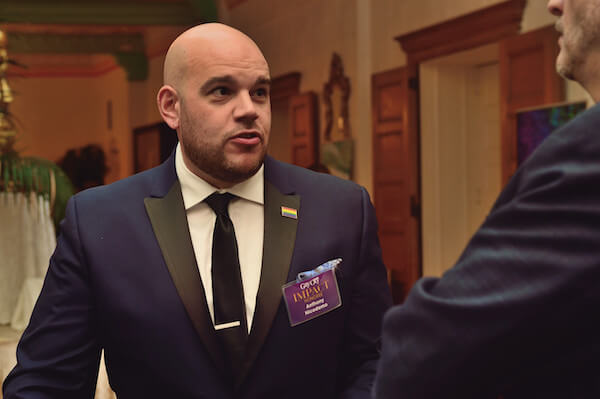Arizona bias case yields sweeping decision, but goes unrecorded
Just one day after a federal appellate court in Cincinnati ruled that transgender discrimination might violate the Civil Rights Act of 1964 as well as the Equal Protection Clause of the Constitution, a federal judge in Arizona, in an apparent coincidence, issued a similar ruling in a lawsuit against Maricopa County Community College.
As in the Ohio case, the Arizona plaintiff, Rebecca E. Kastl, is a male-to-female transgendered person. As in many transgender discrimination claims, the case centered around which restroom facilities Kastl would be allowed to use as a student and adjunct faculty member at the college.
According to a June 2 opinion issued by U.S. District Judge Susan R. Bolton, an appointee of Pres. Bill Clinton, Kastl had “lived and presented herself as a man” until July 2000, when two psychologists diagnosed her as having a gender identity disorder. When Kastl’s physician determined her to be biologically female in February 2001, she legally changed her name from a traditionally masculine one and obtained a new state driver’s license indicating her sex as female.
However, this did not satisfy officials at Maricopa Community College. When some students complained about Kastl using the women’s restroom, the school adopted a “new restroom policy in October 5, 2001,” according to Bolton’s opinion, “that required Plaintiff and another transsexual faculty member to use the men’s restroom facilities until each provided proof that she had completed genital correction surgery, also known as sex reassignment surgery.”
The college refused to accept Kastl’s new Arizona driver’s license as proof of sex, calling it “inconclusive and irrelevant.”
Despite Kastl’s protests about the danger to herself from being required to use the men’s room while presenting herself as female, the college stood its ground and terminated her employment in December 2001. Kastl filed a complaint with the Equal Employment Opportunity Commission and subsequently filed a lawsuit, claiming violations of Title VII of the Civil Rights Act, the Americans With Disabilities Act (ADA), Title IX of the Higher Education Act, which forbids sex discrimination by educational institutions that receive federal financial assistance, and her constitutional rights of due process, equal protection of the laws, and freedom of speech.
The college filed a motion to have the case dismissed, claiming that none of the legal theories advanced in Kastl’s complaint were viable. Bolton dismissed the ADA claim, since gender identity claims are specifically excluded under that statute, but refused to dismiss the other claims, finding that it was possible that Kastl could prevail at trial on all of them.
“It is well settled that Title VII’s prohibition on sex discrimination encompasses discrimination against an individual for failure to conform to sex stereotypes,” Bolton wrote. “Therefore, neither a woman with male genitalia nor a man with stereotypically female anatomy, such as breasts, may be deprived of a benefit or privilege of employment by reason of that nonconforming trait.”
Addressing the central question of restroom usage, Bolton conceded that courts have found that employers are entitled to designate respective restrooms for male and female employees, but argued that the college violated Kastl’s civil rights.
“To create restrooms for each sex but to require a woman to use the men’s restroom if she fails to conform to the employer’s expectations regarding a woman’s behavior or anatomy, or to require her to prove her conformity with those expectations, violates Title VII,” wrote Bolton, upholding Katl’s right to a trial to argue her claims in a trial.
As had the court of appeals in a similar Ohio case, Bolton found that a sex discrimination claim against a public entity, such as the community college, could also be a constitutional equal protection claim. But the constitutional issues in Kastl’s case present deeper implications, because she also alleged violation of her rights of procedural due process, privacy, and free speech. Bolton found that all these claims were potentially valid.
Unfortunately, Bolton designated this sweeping decision as “not for publication,” so unless she changes her mind, the opinion will not be formally published in the official record for federal district court decisions. Though trial court opinions only establish binding legal precedents on the parties to a given case, rulings that address challenging legal issues often influence other judges confronted by the same questions.




































